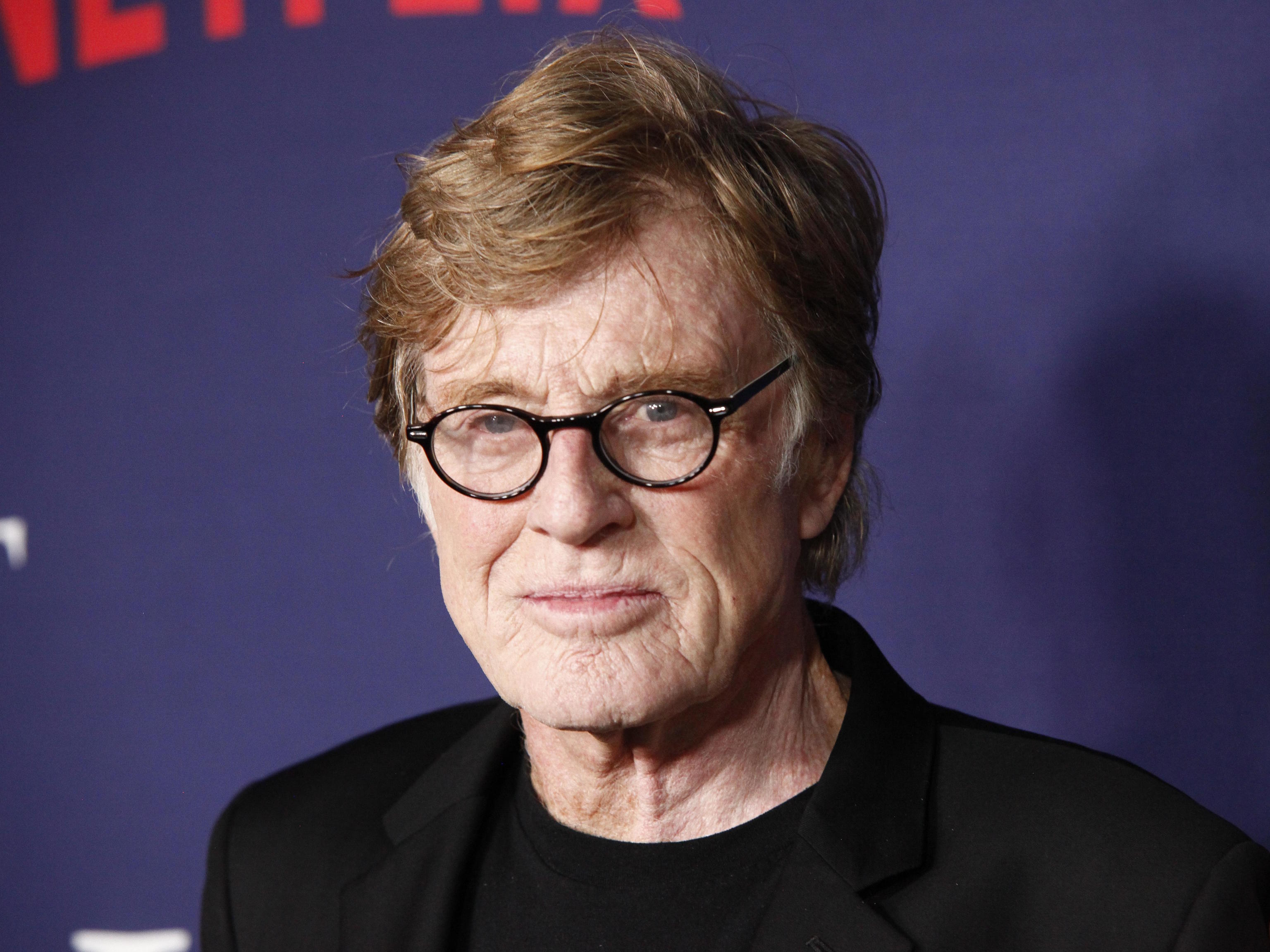It's 1975, and an image of Robert Redford is burning in the southern area of the state of Utah, in the rocky environment of the Kaiparowits Plateau. According to The New York Times, some citizens are roasting hot dogs over the ashes of the actor who just prevented the installation of a $3.5 billion coal power plant after months of campaigning against it. The site would later become a National Monument in 1996 by Bill Clinton, and the state of Utah, the actor's home until his recently announced death.
The scene, which might seem anecdotal, is the very definition of activism and political commitment that Robert Redford held onto throughout his life. "Every time you hear someone concerned about the environment, they are called an environmentalist. And yes, I am an environmentalist," declared the actor, with a bushy mustache and long sideburns, 50 years ago in an interview from the same plateau for the CBS program 60 Minutes, which he had called for his campaign against the power plant. When the climate crisis was barely on the table, he emerged as one of its staunchest advocates.
Five years earlier, Robert Redford had already prevented the construction of a six-lane highway in a Utah canyon and had been part of the board of directors of the Natural Resources Defense Council for four decades. In 2016, in a letter to Time, he opposed the Energy Transfer Partners pipeline that would cross 1,900 kilometers between North Dakota and Illinois, affecting Sioux communities. During Barack Obama's presidency - whom he ended up praising - he opposed the White House for allowing the construction of another pipeline, the Keystone XL, which would cross the United States from Canada to the Gulf of Mexico.
Because for much of his life, Robert Redford has been a star, yes. But without giving up on social causes or politics, which he discovered in the 1940s through Franklin D. Roosevelt's radio speeches that his parents listened to at home. He delved into climate activism very early in his career, in 1962, with Rachel Carson's essay Silent Spring, and ten years later, he brought it to the screen as the lead in Jeremiah Johnson. In the 1980s, he founded the Institute for Resource Management and in 2005, along with his son James, he established the Robert Redford Center, both to delve into climate issues.
"I am here as a climate activist, but also as a father, grandfather, and concerned citizen, one of the billions around the world telling you to do something about climate change now," the actor stated in 2015 in a speech to the United Nations General Assembly.
However, his political commitment did not stop at environmental issues. Although he openly endorsed Obama in 2012 and Biden in 2020, Redford's Democratic political affiliation is evident. In 1976, he was one of the main instigators for Jimmy Carter to reach the Oval Office, defeating Gerald Ford. The actor advised the Democratic candidate on the debates for that campaign. "I didn't know what the hell I was going to do. Robert Redford came, sat on the floor of the room where we were preparing the meetings, and we rehearsed all the topics over and over again," recalled the late president in an interview.
Also in the 1970s, he personally paid the $450,000 - an exorbitant amount at the time - for the rights to produce All the President's Men. He called Bob Woodward himself to get involved in the project, met with him in New York, asked him to correct the script, and thus, their story on the Watergate scandal could reach even further. Redford was also a producer of that film, although the book's authors -Woodward and Bernstein- did not want to mix with Hollywood.
By the early 1980s, tired of being the Hollywood heartthrob, he moved behind the camera. He won the Best Director Oscar in 1981 for Ordinary People and stepped away from the Hollywood scene to found, in the mountains of Colorado, the Sundance Institute, his independent filmmaker lab, and a few years later, the festival. Another culturally political decision. From there, the careers of filmmakers like the Coen Brothers, Quentin Tarantino, Steven Soderbergh, Paul Thomas Anderson, Chloé Zhao, Sean Baker, Ryan Coogler... were propelled.
Over the years, Robert Redford continued to balance his successful acting career with his role as a political figure. In the early 2000s, he was one of the public figures who opposed the Iraq invasion, promoted by George Bush. To the extent that he publicly demanded that the president and his administration issue "a huge apology" to American citizens for entering the war. "The Bush administration's energy policy to date - a military garrison in the Middle East and oil extraction in the Arctic and other fragile habitats - is costly, dangerous, and counterproductive," he wrote in a letter published by Los Angeles Times.
In 2018, the current President of the United States, Donald Trump, also faced criticism from Robert Redford. "For the first time, I feel out of place in the country where I was born and in the citizenship I have loved all my life," he wrote in a statement. And two years later, in a letter to CNN, he wrote: "The cost [of the Trump administration] is almost biblical: fires and floods, a literal plague upon the earth, an eruption of hate being summoned and exploited by a leader without conscience or shame. Four more years would accelerate our descent into autocracy. It would be taken as a license to punish more supposed traitors and wage more petty vengeance, with full support from the Department of Justice."
Yesterday, Trump offered a brief farewell message to the actor in a press statement: "I will say that Robert Redford was great. He had a number of years where there was no one better." Without mentioning the role of political activist that the actor never wanted to separate from.
